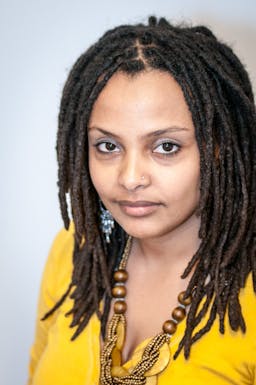Act on 2250 by implementing campaigns, programs and projects for gender-just peace
May 28, 2019
Story
The 9th of December 2016 marked the 1 year anniversary of the adoption of UN Security Council Resolution 2250. I remember the day that it was announced (9 December 2015), and how quickly myself and the many of my friends, young peacebuilders from all over the world, were circulating the news on social media. We were euphoric about this historical milestone, something we have dreamed of for years, especially as we had familiarized ourselves with the UNSC Resolution 1325 (adopted in the year 2000) on Women, Peace and Security. Young peacebuilders had wanted and worked hard to have a resolution they could call their own, and to have all of that effort finally recognized at the UN level was more than wonderful; it was extraordinary. I think it revived hope in many of us, a hope that was diminishing considering the growth of conflict, internally displaced peoples, refugees, human trafficking, gender-based violence, and populist politics that both ignites extremism as well as makes invisible the agency young people have and can possess in bringing about sustainable peace.
But like all UN resolutions and policy papers, the next question of course was “what now?”. Now that we had our resolution, what should we do to implement it and further realize youth agency in peacebuilding?
Since the adoption of UNSCR 2250, young people have been active in advocating for its full implementation, not just in regards to its implementation by states but also by empowering young people to learn more about the resolution as well as establish peacebuilding initiatives on their own.
For starters, the UN appointed an advisory group on Youth, Peace and Security, almost entirely made up of young people. There is also a platform called Youth4Peace that young people (as well as others) can access to get information and join the campaign for young peacebuilders.
The United Network of Young Peacebuilders (UNOY Peacebuilders) an organization that I have had close affiliation to as a past member of the International Steering Group of UNOY Peacebuilders, also has many toolkits and resources that may guide youth to become more active in peacebuilding, including a guide to kick-start the implementation of UNSCR 2250 both at the local and national level. However, there are a few concerns that I have, and currently researching on (Weldeab Sebhatu, 2017 forthcoming). To sum up my concerns in one phrase: UNSCR 2250 needs to engage and take into consideration gender-just peace and transitional justice. According to Björkdahl and Mannergren-Selimovic (2013; 2014; 2015), gender-just peace ensures that post-conflict societies do not return or restructure peace to strengthen and emulate pre-conflict situation—often marred by patriarchal structures that oppress women and other gendered persons—but as a positive peace that provides for social justice and equity. As UNSCR 2250 was inspired by UNSCR 1325 on Women, Peace and Security, it would be a mistake to not take into consideration of how the representations of youth—as peacebuilders and perpetrators of violence—in terms of the very gendered discourses that both define and seek to undermine the agency of young people in peacebuilding. If UNSCR 2250 and its advocates seek to be progressive and struggle for conflict transformation for sustainable peace, then it must take into consideration how:
- Youth as a nodal point of discourse on both peace and violence is highly gendered; and
- Peacebuilding efforts will not be sustainable or just without advocating for and making sure that gender-just peace prevails within the post-conflict society.
More to come soon!
References Björkdahl, A. & Mannergren Selilmovic, J., 2015. Gendered agency in transitional justice. Security Dialogue, 46(2), pp. 165-182.
Björkdahl, A. & Mannergren Selimovic, J., 2013. Advancing Women Agency in Transitional Justice, s.l.: International Studies Association, ISA Annual Convention.
Björkdahl, A. & Mannergren Selimovic, J., 2014. Gendered justice gaps in Bosnia-Herzegovina. Human Rights Review, 15(2), pp. 201-218.
Twitter: @MsPoCoAfricana and @RahelWeldeab




